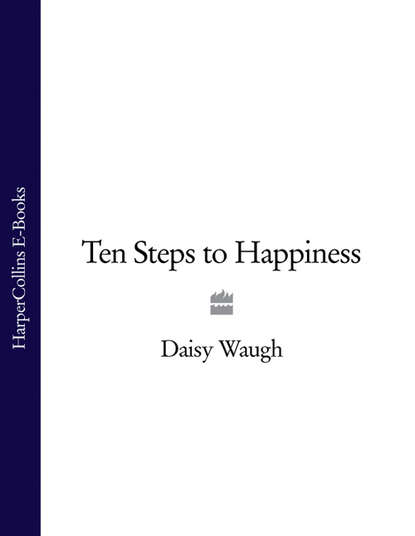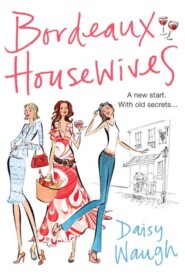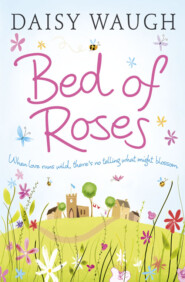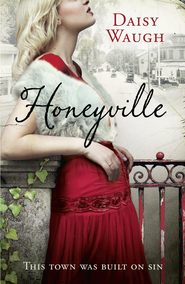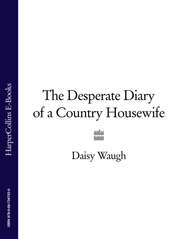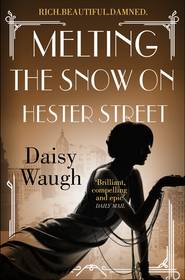По всем вопросам обращайтесь на: info@litportal.ru
(©) 2003-2024.
✖
Ten Steps to Happiness
Автор
Год написания книги
2018
Настройки чтения
Размер шрифта
Высота строк
Поля
‘We’re not talking about the health and safety of your animals, Mr Maxwell McDonald. We’re talking about the health and safety of the community at large. For which, at this moment in time, I am currently responsible.’
‘They’ve had no contact with any livestock for over twenty years, Mr Coleridge. And they’re in quarantine. Please…What harm can they do down there? Can’t we at least test them? Can’t we test them first? And if they’re carrying the disease—Which they aren’t…’
‘My job, as you know, is simply to make a note of all livestock on the premises, and that is what I have come here to do—’
‘But what harm are they doing? What harm can they possibly do?’
‘For reasons of health and safety—’
‘This has nothing to do with health and safety! You know as well as I do the cows are no threat to anyone down there.’
‘For reasons of health and safety,’ he said steadfastly, ‘I must ask you to open that door.’
‘Not me,’ said Charlie. ‘Open it yourself. But watch out. They’ve been known to attack strangers.’
Coleridge hesitated for a second. Highland cows are always gentle, and Charlie’s were the most gentle of all. But Coleridge didn’t know that. He knew only that they were hefty, and horned and very hairy…He considered retreating to fetch reinforcements, but then they might hide the cows somewhere else, somewhere he might never find them. He couldn’t risk it. Plus he had the law on his side, and a delicious, intoxicating sense of his own efficiency. Mr Coleridge garnered all his courage, thought briefly of whom he might sue should anything go wrong, took the few steps to the cellar door and opened it.
The animals had somehow managed to break out of their makeshift stable at the end of the corridor and were standing in the middle of the main room, surrounded by broken bottles and in a large pool of what at first glance looked like blood but was in fact some of the General’s best wine. They greeted Coleridge with a long, low wail of pitiful bewilderment.
Coleridge quickly summoned the vets, the slaughtermen and two of the pyre operators who could be spared, now that the fire was lit. They all looked on (or stood guard) while Charlie coaxed the animals up the cellar stairs again.
‘I am sorry,’ said Mr Coleridge as they passed him – and in his own humdrum way he meant it. ‘I’m sure you will understand, once the heat of the moment is passed, so to speak. I’m only doing my job. Please don’t run away with the impression that I’m enjoying this.’
Charlie shrugged. ‘At least if you were enjoying it,’ he said, ‘there would be some point to the exercise.’
He led them through the back yard, across the yard beyond, to the steep path which led to the bottom field. Grey, the General and Jo walked silently beside him, and, like a gaggle of official mourners, the law enforcers followed close behind. It was dark by then, and their slow journey was lit by the snow’s reflection of the flames from the distant pyre. As the three old friends shuffled along, the one leading the others to their execution, the animals kept up their mournful wails of protest, and Charlie chattered to them incessantly. They were his childhood companions, his link with the past. In their gentle, affectionate souls he felt that a small part of his mother and his sister were living yet, and he felt that his mother and sister were watching him on this long slow walk, and that with every step he took, he was forsaking them.
The cows seemed to have no sense of what was about to befall them until they came to the point, over the brow of a small upward slope, where for the first time the smell of roasting flesh hit their nostrils, and the full, loathsome scale of the burning pyre and the great pile of carcasses which lay illuminated at its base became clear for all to see.
After that the cows wouldn’t move. They were transfixed. Nothing Charlie, or Grey or Jo or the General, or the pyre builders, or the slaughtermen, or the vets said or did could make them take another step. After a while Mr Daniels, the burly senior slaughterman, made a point of looking at his watch. ‘We can’t stand about ’ere fur ever,’ he said. ‘We shall have to kill ’em as they stand.’
‘No,’ said Charlie.
‘But they ain’t movin’ nowhere, Mr Maxwell McDonald. We shall be ’ere all night.’
‘You’re not killing them here,’ said Charlie. ‘You’re not. They need…’ He cast around for something, anything, to delay the moment. ‘They need to be tranquillised first.’
‘With respect,’ said one of the vets, ‘you’re only prolonging the process. They don’t need to be transquillised. As you can see they’re quite calm. They need—’
‘Don’t tell me what they need,’ said Charlie. ‘Don’t fucking tell me what they need.’ He rested his head on Jasonette’s shoulders and all the humans fell silent, looking at him.
Mr Daniels nodded at his assistant and stepped forward, his bolt gun at the ready. The two of them walked around the side of the animals and came to a halt at their heads.
‘Sedate them,’ barked the General suddenly. ‘Why don’t you sedate them?’ Something in his voice made Jo look across at him. There were tears rolling down his face.
‘The longer we stand here,’ the senior vet tried his best to sound as patient as he wished he could feel, after so much killing, ‘the more alarmed they’re going to become. Go on, Mr Daniels. Please. Continue. Get it done.’
Mr Daniels held up his gun and Jasonette stood there, waiting, offering him her large furry temple. ‘We’ll be doin’ ’em a favour, you know,’ he muttered disapprovingly. ‘Old beasts like this. They’re better off dead.’
Charlie leapt at him. Before he had time to think, before anyone had time to stop him. Charlie had never in his adult life hit a single soul, but there was a crack as his fist struck the slaughterman’s jaw. Mr Daniels lurched backwards, blinked in surprise, and immediately lurched forwards again to wreak his revenge. And then Jo, until that point strangely anaesthetised by the horror, sprung suddenly to life. Head down and yelling, she lunged for Mr Daniels’ burly chest.
‘No!’ cried Charlie, trying to catch her before she got hurt. ‘No, Jo, don’t!’
Daniels looked from one to the other in confusion. It distracted him for a second, long enough for Grey, 6′4″, fearless and frightening without even trying to be, to step up between them.
‘Leave it,’ he snarled, glowering down at Daniels. ‘Leave it.’
They eyeballed each other. Daniels hesitated. ‘They’re only a couple of fuckin’ cows,’ he said, retreating with a surly shuffle. And with that, and with Charlie and Jo both restrained by the pyre builders, and the animals standing alone, helpless but not entirely oblivious, he took his gun, took aim and fired.
Bang.
Bang.
They were almost dead. The assistant slaughterer bent over the bodies and inserted his serrated rod into the bullet holes, twisted. With a final jerk, a final grunting, hiccupping moan, Caroline and Jasonette departed.
‘As a gesture of goodwill,’ Mr Coleridge said, ‘I shan’t be making a detailed report about the incidents surrounding this case. Suffice to say, Mr Maxwell McDonald, that all livestock on the Fiddleford estate has now been duly recorded.’
FIRE SIGNS
Since 24 December 1998 the older, text-only ‘fire exit’ signs should have been supplemented or replaced with pictogram signs. Fire safety signs complying with BS 5499 Part 1:1990 already contain a pictogram and do not need changing.
Safety signs in the catering industry. Health and Safety Executive Catering Information Sheet No 16
(ii) SECURE TIME-BOUND PROGRAMME OF IMPLEMENTATION (#ulink_b2decf5f-431b-587f-af52-a2e4733628b1)
Autumn 2001
They had spent the Ministry’s compensation money and a lot more besides rebuilding the park’s crumbling walls, and they’d refurbished the two-hundred-year-old gates at the bottom of the front drive so they could be operated by remote control.
‘That’ll keep the buggers at bay,’ said the General, standing in front of them with his clicking machine, opening and closing them until they broke. (It took two weeks and £950 plus VAT to get them mended.) ‘They won’t be able to get at us now! Ha!’ Nobody was certain if he was referring to unscrupulous news reporters or to the whole human race. It didn’t matter. Either way he was quite right. They’d laid barbed wire on top of the twelve-foot walls. Unwelcome visitors to Fiddleford would need to work hard to find a way in.
A lot had changed since the foot and mouth purge and the estate, if you could still call it that, was less than a tenth the size it had been a year ago. Charlie, like so many other farmers, had realised that if they were to survive at all, there needed to be some radical rethinking, and as a result he’d done many things at Fiddleford which he’d always hoped to postpone until after his father died. He decided to restock only a fraction of the animals he had lost in the cull, and now all but sixty acres of the land was sold, and there were only two cottages remaining; one which Mrs Webber, the old housekeeper, had been promised for life, and the other, at the bottom of the drive, which was still awaiting the arrival of the General. Mrs Webber, sixty-four last summer, now only worked in the mornings, which meant Les Chedzoy was the single full-time employee left. He was useless at his job – at almost everything he did – and not even very pleasant, but he’d been born in a cottage on the estate and he was exceptionally stupid. Much too stupid, Charlie believed, to survive in a world beyond Fiddleford. He lived in the village now, in a small house which, on his retirement twenty-two years ago, the General had given to his father.
In all, after the sale and including the MAFF compensation cheque, Charlie and Jo had raised just enough money for the park walls and the gate, to build one extra bathroom and to do all the most urgent external repairs. Jo had needed to fight to be allowed to spend anything on the inside of the house. (Any highfaluting dreams of kitchen refurbishments and so on had been very quickly disbanded). But she had been to IKEA and bought ten new duvets and duvet covers, which had cheered everyone up, and finally, after Les claimed to have a fear of heights, lugged her increasingly bulbous belly onto a stepladder and repainted most of the upstairs rooms herself. And then that was it. All the money was gone.
The end result was a generally sturdy old house with a mended boiler (but no pilates teacher; no chapel-effect-chill-out-room; certainly no gym in the junk-filled stables), and a phenomenal, unimaginable amount of paperwork. On his solicitor’s advice Charlie was in the process of applying for a myriad of licences and government permits, all apparently necessary if Fiddleford was to operate legally in its new form.
And while they waited…and waited…for government officials to hand out all the licences they insist on inventing, Charlie, Grey and the General had been trying to persuade Jo that they should press ahead and open the refuge anyway. Jo was adamant that they should not. But she too began to lose confidence in the system when, after four and a half months of silence, two letters arrived from the local planning office on the same day. The first, rejecting outright an application, already withdrawn, in writing, twice, to convert the old stables into a gym. The second, saying it had ‘temporarily mislaid’ all documents relating to that same application, and requesting that the application be ‘resubmitted’ at once.
Fiddleford desperately needed an income. Jo, seven months pregnant now, understood that as well as any of them. She understood it even better the day Charlie returned from the local animal feed merchant with an empty trailer, having had every credit card rejected.
‘I think I can persuade them to extend the overdraft a little bit,’ he said drearily, sitting at the unrefurbished kitchen table, his head in his hands. ‘But after that…This is serious. We can’t just talk about it anymore. We’ve got to get some bloody guests.’
That afternoon he and Jo went on a final recce of the house to convince each other once and for all that it was ready. They didn’t choose to comment on the damp patches already beginning to show through Jo’s paintwork. Nor on how most of the landing rugs had worn, in patches, right through to the wood. Nor on the numerous paint splodges which had been left by Jo all over the floor and furniture, nor on the frayed and faded state of all the sofas, armchairs, curtains…nor on the fact that the windows in the bedrooms all rattled and leaked.
By the time they reached the end of the tour neither had managed to speak for several minutes. They paused on the upstairs landing, glanced nervously at each other.
‘It’s not quite what we’d envisaged, is it?’ she said at last.





